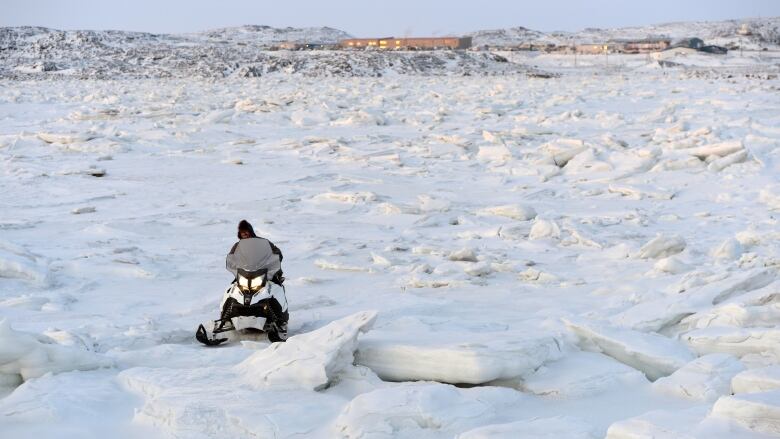Canada's Arctic compares poorly around globe: report
2nd Arctic Human Development Report finds Canada's Arctic in middle of the pack

A long-running study concludes that the well-being of northernersin Canada's increasingly urban Arctic compares poorly with people inother circumpolar regions.
The second Arctic Human Development Report, released Tuesday,says northern Canadians rank at best in the middle of the pack whenit comes to infant mortality, tuberculosis, fatal accidents,homicide or suicide.
"Canada is not doing as well as other areas in certaindimensions," lead author Gail Fondahl said Tuesday.
But Canada leads in other ways, said Fondahl, a professor at theUniversity of Northern British Columbia.
"Canada is leading the world in some things like innovativegovernance structures that allow for local participation."
The Arctic report is a followup to one released in 2004. It wasfunded by a wide array of international bodies and is to be
presented to the Arctic Council before its upcoming meeting inApril.
It attempts to compare the Arctic regions of Canada, the UnitedStates, Russia, Greenland, Iceland, Scandinavia and regions such asthe Faroe Islands.
In general, the study concludes that health is strongest inNordic countries such as Norway and Finland, where there is little difference between north and south or indigenous and non-indigenous.
In North America's Western Arctic Alaska, Yukon and theNorthwest Territories health is comparable to or better than thenational average. But aboriginal people fare significantly worse.
Greenland and Nunavut, where more than 85 per cent of thepopulation is Inuit, show much poorer health status than theirrespective national averages.
The Russian Arctic consistently fares the worst.
More say in development
The report also picks out bright spots such as an increasingtendency for northerners to have a say in the development ofresources. Canada, where land-claim settlements have createdenvironmental boards that give a strong voice to local people, hasled the way, said Fondahl.
"What we see in this is a real innovation to get local buy-in toresource management. There are a lot of people who think this is thebest of what we're offering in terms of local participation."
Attempts by the federal government to reduce the independence ofsome of those boards are being fought in the courts.
The study also found a major population shift from tiny, outlyingcommunities to urban centres that vary in size from Russia's citiesof more than 100,000 to Nunavut's capital of Iqaluit at 7,000.
But the pattern is occurring everywhere. And, said Fondahl, morewomen are moving than men.
"Women are becoming more educated in a formal sense at a greaterdegree than men and therefore are not finding the kind of jobs thatthey aspire to in their local communities."
The report also notes that the Arctic's population would bedropping without high birth rates in Alaska and Canada. Nunavut hasa fertility rate of three children per woman the highest in thecircumpolar world.
Research also suggested that the region is enjoying a modestcultural rebirth, despite social problems that eat away at manynorthern communities, Fondahl said.
"There's a huge music and arts scene, film, a lot of reallyinnovative arts," she said. "There's a lot of celebration of
identities ... trying to negotiate between what's called traditionaland what's called modern and coming up with new and interesting waysto do that."












_(720p).jpg)


 OFFICIAL HD MUSIC VIDEO.jpg)
.jpg)



























































































